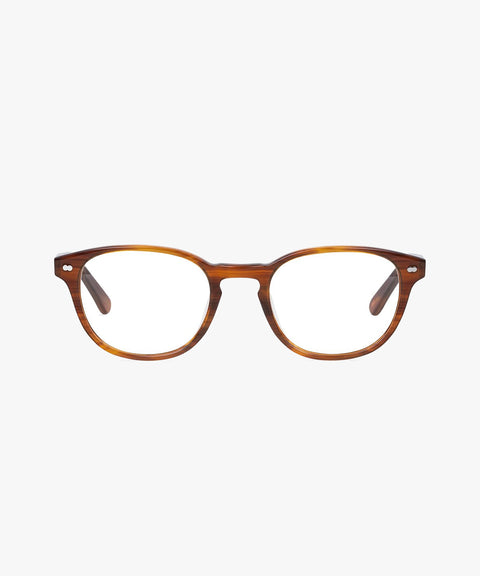FAQ
Blue light glasses, also known as computer glasses, are eyeglasses with lenses that are designed to protect the eyes from the harmful blue light emitted by digital screens such as smartphones, computers, and televisions. Blue light glasses are often marketed as a way to reduce eye strain, dry eyes and headaches. The special lenses that filter our the blue light can prevent these symptoms and improve sleep quality.
The lenses in our blue light glasses have a special coating that selectively blocks out blue light while allowing other colors of light to pass through. The lenses may have a yellow or amber tint, which helps to reduce the amount of blue light that enters the eyes. When we look at digital screens, our eyes are exposed to blue light which can cause eye strain and disrupt our sleep patterns. The filter on our blue light lenses reduce the amount of blue light that enters our eyes, thus reducing eye strain and fatigue.
Anyone who spends a significant amount of time in front of a digital screen can benefit from wearing blue light glasses. This includes people who use computers, laptops, tablets, smartphones, and other electronic devices on a daily basis. Some examples of people who may benefit from wearing blue light glasses include office workers who spend hours in front of a computer, students who need to study using digital devices, gamers who spend extended periods of time playing video games, and individuals who use their smartphones or tablets for long periods of time throughout the day. Those who experience eye strain, headaches, or difficulty sleeping due to excessive screen time may also find relief from using our blue light glasses.
The effectiveness of blue light glasses in reducing eye strain and improving sleep quality is still a matter of debate. Some studies suggest that they may be effective in reducing eye strain, while others suggest that they have little to no effect on sleep quality. Many people who use blue light glasses report feeling less eye strain and fatigue when working or studying on a computer or other digital device. While the effectiveness of blue light glasses is still being studied, many people find them helpful in reducing digital eye strain and fatigue when used correctly and in combination with other measures.
It's important to note that blue light glasses are not a cure for digital eye strain and other measures should be taken to reduce eye strain, such as taking regular breaks, adjusting the brightness and contrast of electronic screens, and maintaining proper posture while using electronic devices. Additionally, it's important to use blue light glasses correctly. They should be worn consistently when using electronic devices, and the glasses should be of high quality to ensure that they effectively filter out blue light.
There are generally no harmful side effects of wearing blue light glasses, and they are considered safe for most people to use.
However, there are a few things to keep in mind when using blue light glasses. Some people may experience minor discomfort or dizziness when first wearing the glasses, but this typically subsides after a few days of use. Another thing to keep in mind is that blue light glasses should not be worn while driving at night or in low-light conditions, as they can distort color perception.
Overall, blue light glasses are considered safe and generally do not have any harmful side effects.
It is generally not recommended to wear blue light glasses while driving, especially at night or in low-light conditions. This is because blue light glasses can alter color perception and reduce visibility, which can be dangerous while driving.
While blue light glasses can be helpful in reducing digital eye strain, they can also interfere with color perception, making it difficult to differentiate between certain colors, and when driving, it's important to have accurate color perception and visibility, especially at night or in low-light conditions. Wearing blue light glasses while driving can make it harder to see and respond to traffic signals, hazards, and other important information on the road.




















